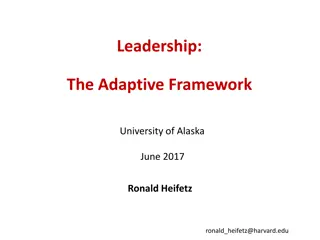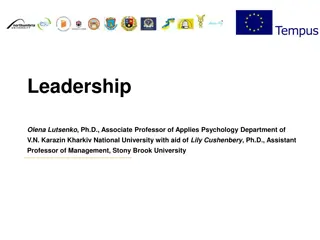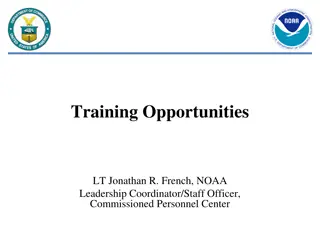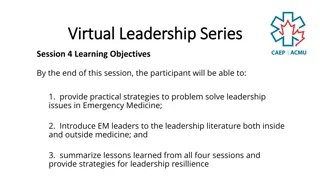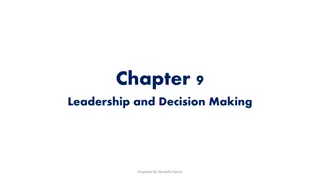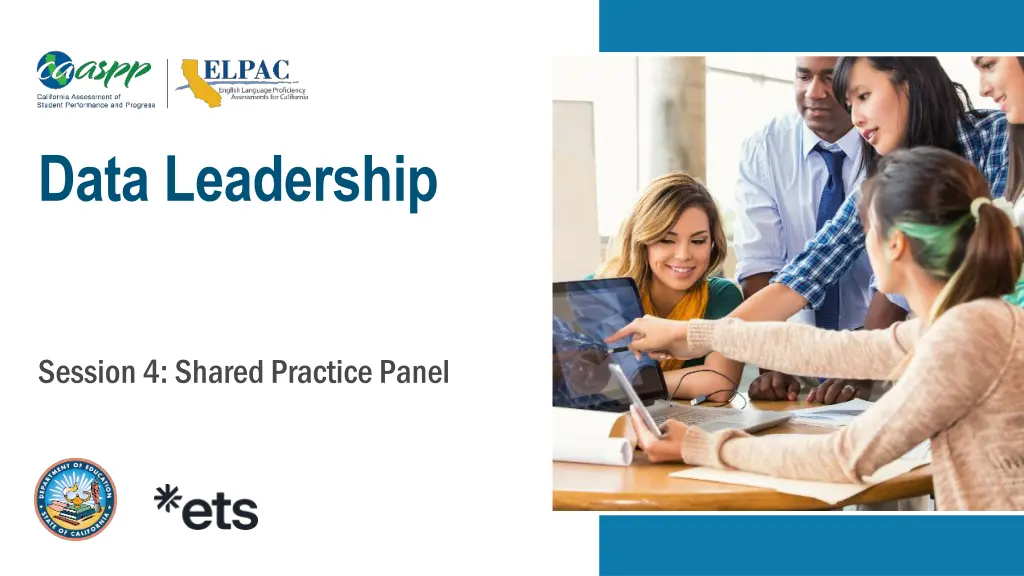
Shared Practice Panel in Data Leadership Session 4
Explore insights from the Shared Practice Panel in Data Leadership Session 4, featuring prominent educators discussing strategies to improve student outcomes using data, and how these strategies can be implemented in various educational settings.
Download Presentation

Please find below an Image/Link to download the presentation.
The content on the website is provided AS IS for your information and personal use only. It may not be sold, licensed, or shared on other websites without obtaining consent from the author. If you encounter any issues during the download, it is possible that the publisher has removed the file from their server.
You are allowed to download the files provided on this website for personal or commercial use, subject to the condition that they are used lawfully. All files are the property of their respective owners.
The content on the website is provided AS IS for your information and personal use only. It may not be sold, licensed, or shared on other websites without obtaining consent from the author.
E N D
Presentation Transcript
Data Leadership Session 4: Shared Practice Panel
Zoom Housekeeping Please keep your microphone muted unless otherwise directed. Select the [Chat] icon. This will provide the Chat window on the right side of the screen. Select the arrow next to the [Microphone] icon to start or change the audio connection. 2 Data Leadership Session 4
Padlet 3 Data Leadership Session 4
Todays Panelists Edwin Clement Assistant Superintendent of Educational Services, Saugus Union School District (USD) Dr. Carin Fractor Director of Curriculum and Instruction, Saugus USD Dr. Jane Wagmeister Assistant Superintendent of Instructional Services, Moorpark Unified School District Nathan Inouye Assistant Director of Instructional Services, Moorpark USD 4 Data Leadership Session 4
Data Leadership Training Series Session 1: Using Summative Assessment Data for Understanding and Improving Systems Session 2: Creating Conditions for Data-Driven Decision- Making Session 3: Using Data for Communication and Engagement Session 4: Shared Practice Panel 5 Data Leadership Session 4
Agenda Welcome and Housekeeping Edwin Clement, Saugus USD Carin Fractor, Saugus USD Jane Wagmeister, Moorpark USD Nathan Inouye, Moorpark USD Panel Discussion Wrap-Up 6 Data Leadership Session 4
Learning Goals for Session 4 Participants will learn about a few strategies that two California local educational agencies (LEAs) employ to use data to improve outcomes for students, and reflect on how these strategies could be adapted for use at their own sites. 7 Data Leadership Session 4
Who is in the room? In the chat, please share the name of your school or LEA. 8
What is your role? Select the role or roles listed that describe what you do at your site. 9
Saugus USD Session 4, Section 1
Saugus USD Overview We are located in the Santa Clarita Valley. Our motto is All means ALL in Saugus Union. Our student population includes: 9,200 students across 14 elementary schools 34.8% socioeconomically disadvantaged 8% English learners 11 Data Leadership Session 4
Our Focus The California School Dashboard shows students making gains, but English learner students need to continue making progress. At least one English Language Progress Indicator (ELPI) level progress rate 50.8% Annual reclassification rate 23% Chronic absenteeism rate 7.3% compared to 5.7% for all students 12 Data Leadership Session 4
Key Actions to Support English Learner Progress (1) English language development (ELD) focused visits Observing designated ELD lessons Reclassification support Monitoring English learner progress against eligibility criteria Professional learning communities (PLCs) Holding weekly grade-level PLCs led by teacher leaders 13 Data Leadership Session 4
Key Actions to Support English Learner Progress (2) Culture and climate commitment Building a deeper understanding of our families Adult and family education Offering English language classes and family data workshops Chronic absenteeism action plans Collaborating with families and monitoring attendance weekly Student goal setting Supporting students and families to use assessment data 14 Data Leadership Session 4
Where We Are Today We have much to celebrate: 2 sites recognized as national Model PLC Schools 1 site recognized as a national Promising Practice PLC School 6 sites recognized as California Distinguished Schools 1 of 100 districts in the nation recognized on the Education Recovery Scorecard for closing the achievement gap post- pandemic 15 Data Leadership Session 4
Our Next Steps We continue to refine and strengthen our student goal-setting practices, PLC processes, and family data workshops. 16 Data Leadership Session 4
Saugus USD Chat What are your takeaways from this presentation? 17
Moorpark USD Session 4, Section 2
Moorpark USD Overview We are located in the city of Moorpark in Ventura County. Our motto is Connecting with Every Student, Every Day! Our student population includes: 5,820 students across 10 schools 33.3% socioeconomically disadvantaged 11.2% English learners 19 Data Leadership Session 4
Our Challenge The district assessment benchmarks were not being used with fidelity. Our solution was to design a pilot process for administering Interim Assessment Blocks (IABs) from the Smarter Balanced Interim Assessments in the California Assessment of Student Performance and Progress (CAASPP) system. Teachers selected IAB items aligned with instruction using nonstandardized administration. 20 Data Leadership Session 4
Initial Pilot Participants 40 teachers in grades three through five participated 71% of students in grades three through five were administered at least one IAB Pilot classroom totals included the following: 1,389 IABs for English language arts/literacy 1,980 IABs for mathematics 21 Data Leadership Session 4
Additional Pilot Participants 108 teachers in grades three through eight and high school participated Pilot classroom totals included the following: 7,357 IABs for ELA and mathematics in elementary grades 5,091 IABs for ELA and mathematics in secondary grades 22 Data Leadership Session 4
Pilot Goals Assess the ease of use and implementation of the IABs. Examine the rigor of twenty-first century learning skills and expose students to the complexity of items on the CAASPP summative assessments. Provide feedback about the pilot process to the LEA in a cycle of improvement. 23 Data Leadership Session 4
Supporting Our Pilot Team Attended to adult learning needs Empathy interviews conducted with teachers District professional learning days focused on IABs Professional learning communities focused on IABs Organized systems and tools to support implementation District assessment committee District assessment calendar 24 Data Leadership Session 4
Students Are Making Gains 2023 24 CAASPP results: 3-point increase in ELA scores for grade six 10-point increase in mathematics scores for grade six 11-point increase in mathematics scores for high school 3-point increase overall for all grade levels Currently, all of our teachers administer IABs according to the district assessment calendar. 25 Data Leadership Session 4
Pilot Outcomes Students Engagement with complex assessment items Boost in confidence Ownership of their learning Teachers Connection between assessment data and instruction Coordinated approach to IAB implementation across content areas and grade levels 26 Data Leadership Session 4
Team Next Steps Our team plans to continue using the approach we piloted across all elementary and secondary schools while adding an updated assessment calendar for the secondary grades; identifying common interim assessments for grades six through eight and high school in ELA, mathematics, and science; communicating with families to increase interim assessment awareness; and updating our standards-based report cards. 27 Data Leadership Session 4
Moorpark USD Chat What are your takeaways from this presentation? 28
Moorpark USD (2) Session 4, Section 3
Moorpark Assessment Calendar District assessment calendar Created by district assessment committee, site administrators, and teacher leaders Outlines the minimum assessment expectations in transitional kindergarten through grade twelve Can be customized by school sites to incorporate additional assessments or require more frequent administration 30 Data Leadership Session 4
Nonstandardized Administration Standardized administration mimics the administration of summative assessments. Nonstandardized administration can provide teachers and students with evidence of learning that can be incorporated into the formative assessment process during classroom instruction. 31 Data Leadership Session 4
Warm-Ups and Bell Ringers The teacher assigns an interim assessment item as students enter the classroom. Students work individually, in pairs, or in groups to collaboratively work toward a solution. The teacher extends the learning opportunity on the basis of how students perform. 32 Data Leadership Session 4
Rotation Stations The teacher designs several activities for students to rotate through during a class period. Students use IAB items as prompts to work on at each station. Students work with their station group on the items and check in with peers and the teacher for feedback during rotations. 33 Data Leadership Session 4
Storybook Performance Task The teacher provides performance task items that students use as inspiration for writing short stories. Students describe the narrative adventures their characters go on while working to solve the problem. Students read their stories to a buddy class. 34 Data Leadership Session 4
Think Aloud Protocol The teacher reviews an IAB item that is aligned with current classroom content. The teacher deconstructs the item and demonstrates how to solve it by sharing the approach aloud with students. 35 Data Leadership Session 4
Teach Me Lessons Students receive IAB items and are asked to design a lesson to teach the class based on their assigned item. Students teach the lessons they designed while their peers actively participate. The lessons conclude with peer feedback. 36 Data Leadership Session 4
Benefits of Nonstandardized Administration Teachers recognize the flexibility of interim assessments and use them during daily instruction. The formative approach enables teachers to respond to student needs promptly. Nonstandardized administration provides students with opportunities to use CAASPP tools and resources in low- risk settings. The process develops students assessment confidence. 37 Data Leadership Session 4
Moorpark USD Chat (2) What are your takeaways from this presentation? 38
Panel Discussion Session 4, Section 4
Questions for the Panelists Submit any questions you have in the padlet. 40
Questions (1) How does your use of data support an asset-based mindset? How does this impact your approach to data analysis? How does your system use a cycle of continuous improvement to support these efforts? 41 Data Leadership Session 4
Questions (2) How do you build authentic partnerships around data? What is its impact on your systemic use of data? 42 Data Leadership Session 4
Questions (3) How do your student data systems support communication and engagement with educational partners? What resources and strategies do you leverage to aid in data discussions with educational partners? 43 Data Leadership Session 4
Wrap-Up Session 4, Section 5
Revisiting Learning Goals for Session 4 Participants will learn about a few strategies that two California LEAs employ to use data to improve outcomes for students, and reflect on how these strategies could be adapted for use at their own sites. 45 Data Leadership Session 4
Exit Survey 46 Data Leadership Session 4
Thank you! 47









